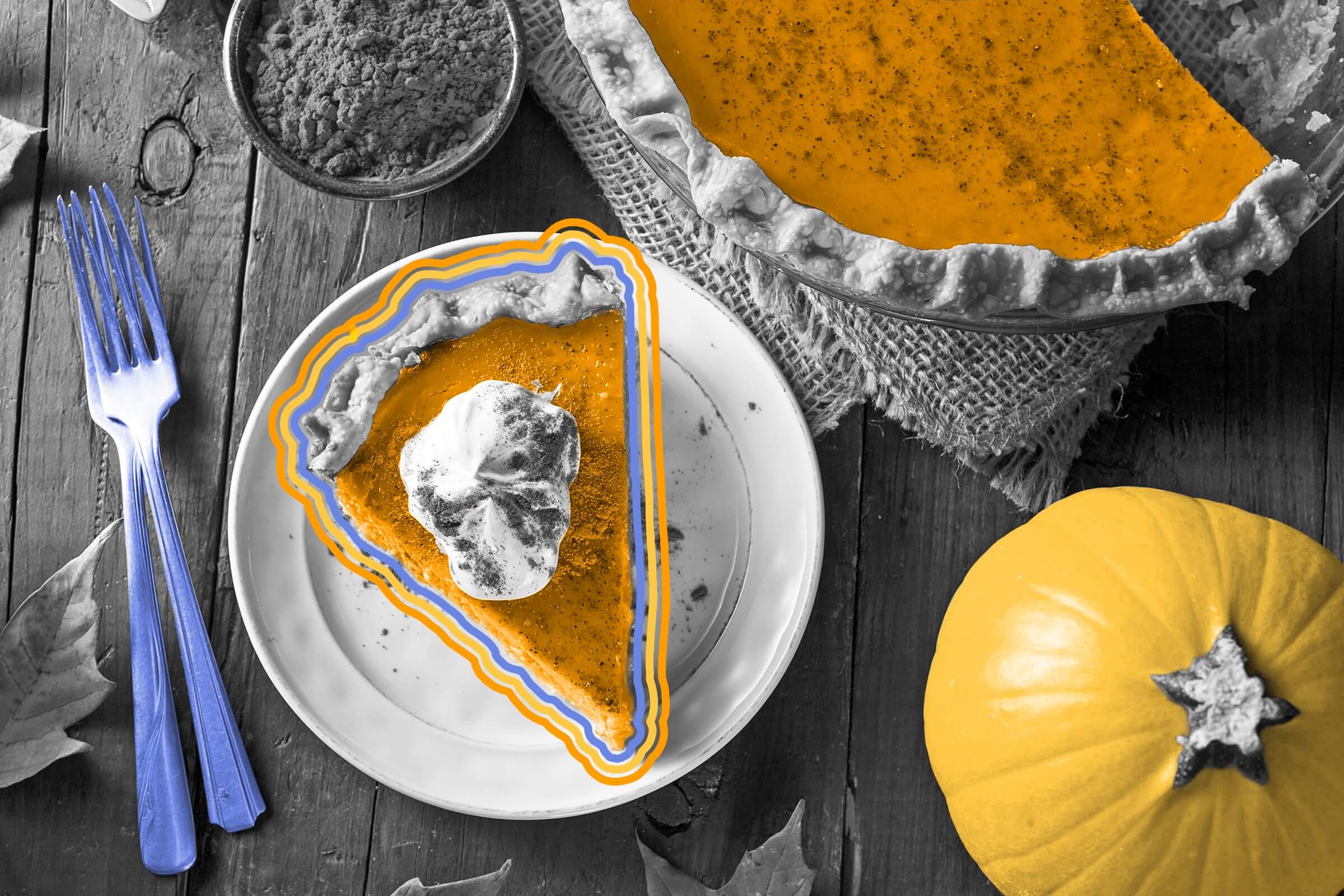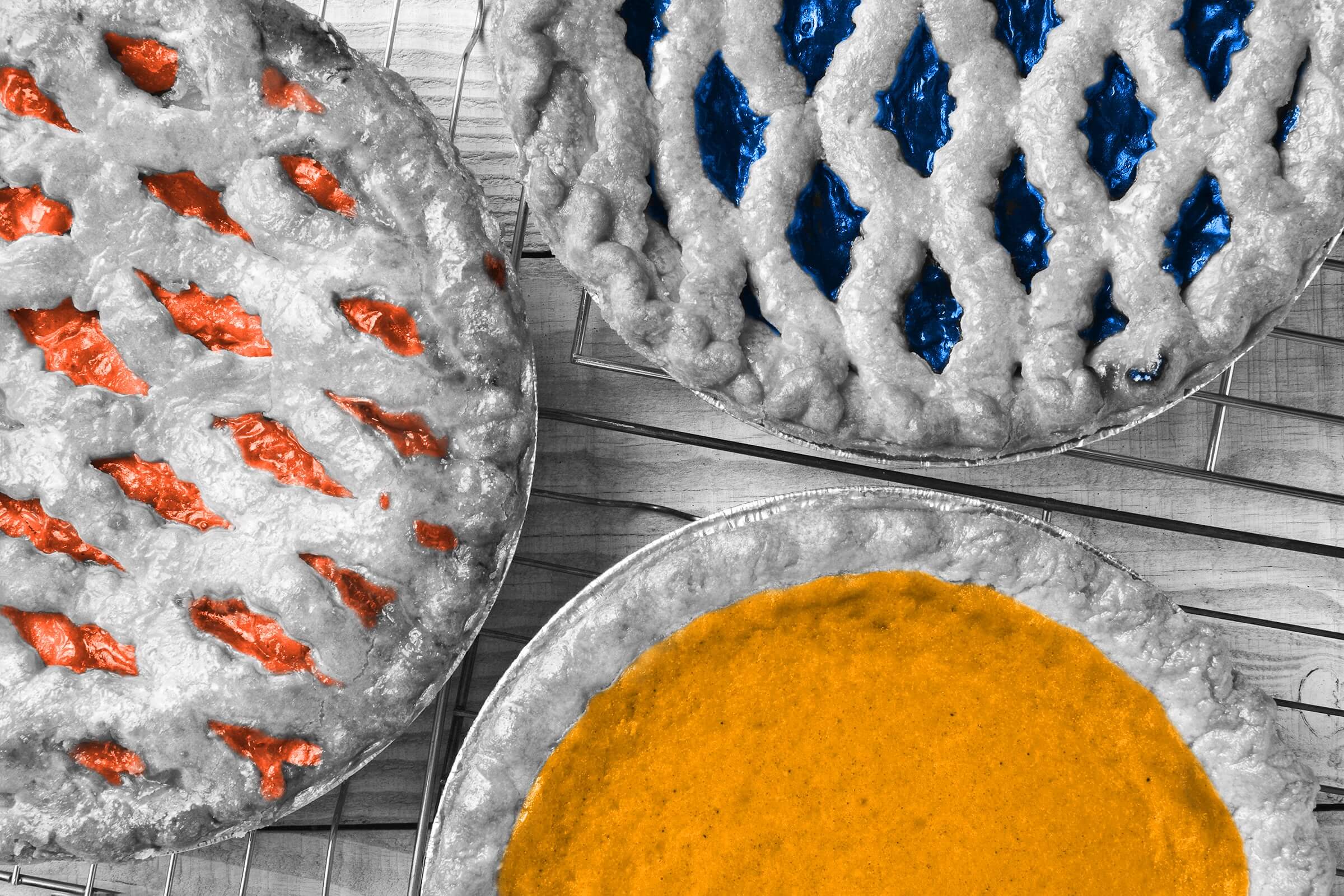
A Connecticut town once postponed Thanksgiving because there wasn’t enough molasses for pumpkin pie.
In October 1705, the Connecticut settlement of Colchester was facing an early winter. While New England was known for its cold snaps, this one was unusually premature and severe, with temperatures so low that nearby waterways froze. The timing was unfortunate; the community had not yet received wintertime provisions, which were typically shipped to them by boat, and a day of Thanksgiving — planned for November 4 — was quickly approaching. (At the time, Thanksgiving was not yet a fixed holiday.) The most important item, molasses, was running low in pantries around town, and without it, residents faced a gloomy situation: Thanksgiving without bread, baked beans, or pumpkin pie. Rather than suffer a paltry holiday spread, town residents voted to postpone Thanksgiving by a week in the hope that a molasses delivery would arrive in time. (Apparently it did.) In the years to follow, the event would be dubbed the “Great Colchester Molasses Shortage,” and eventually parodied in poems.
Molasses was a crucial sweetener in early America, primarily because it was a low-cost alternative to imported sugar. Used in baking, beer brewing, and as occasional livestock feed, molasses was a multipurpose foodstuff. But more importantly, it was the sticky backbone of early American distilling. The amber-colored syrup is the main ingredient in rum, and New Englanders used it to build a booming industry that produced millions of gallons of the spirit each year. In fact, molasses was so important that it was a contributing factor in the American Revolution; in 1733, Great Britain issued the Molasses Act, which levied taxes on molasses imported to the colonies from islands outside of British control. The proclamation heavily impacted the American rum industry, created a molasses black market, and stirred up early sentiment against the crown, which would eventually boil over four decades later.
Boston’s famed baked beans get their signature flavor from molasses, an ingredient that once flooded streets in the city’s North End neighborhood thanks to a storage tank accident. Situated near the city’s waterfront, the steel tank housed 2.3 million gallons of molasses, and was known to leak the sugary liquid thanks to shoddy construction. On January 15, 1919, the tank’s seams gave way, and a 15-foot wave of molasses coursed through several city blocks at a staggering speed of 50 feet per second. The damage was extensive and deadly, killing 21 people, leveling entire buildings and railroad tracks, and leaving behind a mess that required weeks of cleanup. In the years to follow, the accident would be dubbed the Great Molasses Flood, and it inspired legislators across the U.S. to enact stronger regulations to make construction of buildings safer. These days, legend has it that the neighborhood still sometimes smells like molasses when the weather is hot.

